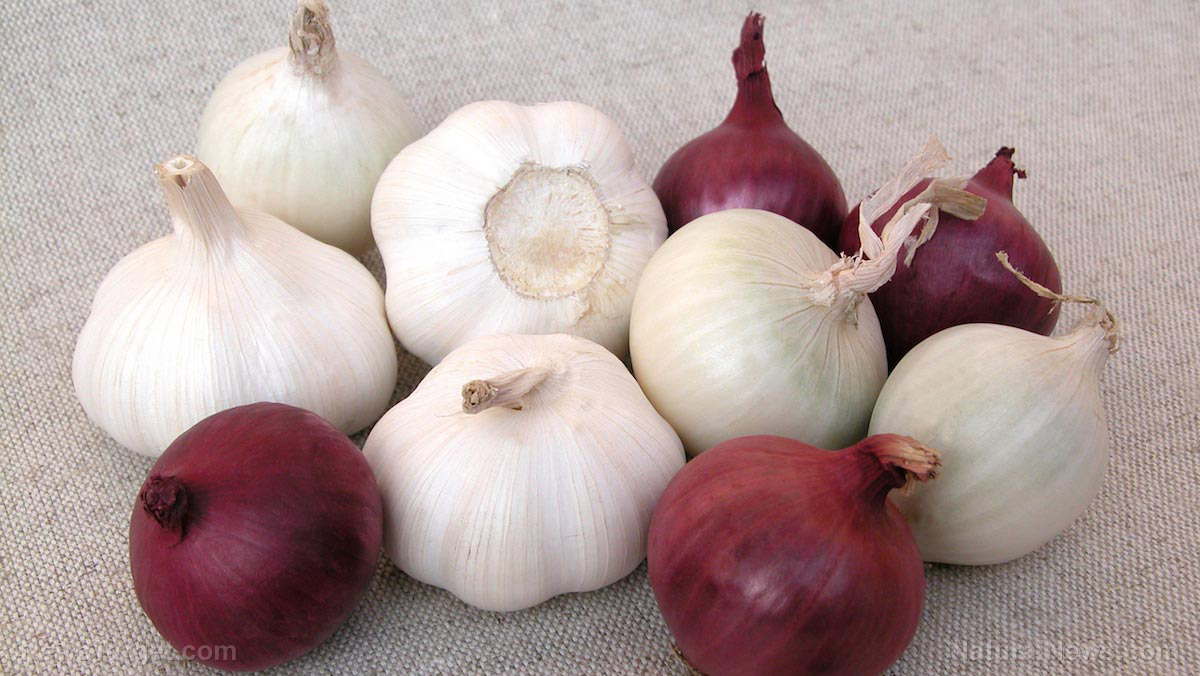Could camel milk be a game-changer for autism? Science says it's worth exploring
By oliviacook // 2025-03-29
Tweet
Share
Copy

- Camel milk may help reduce autism symptoms, with raw camel milk showing the most significant improvements in CARS scores.
- Its unique nutrient composition differs from cow milk, containing antioxidants, smaller immunoglobulins and an absence of A1 beta-casein, which may impact brain function.
- Researchers suggest camel milk's benefits may stem from its antioxidant, anti-inflammatory and gut-supporting properties.
- Most studies on camel milk and autism have been short-term, lasting no more than two weeks, highlighting the need for larger, longer-term clinical trials.
- Camel milk is not a replacement for traditional ASD treatments but it could serve as a complementary dietary approach under medical supervision
A nutritional profile unlike any other milk
Milk has long been a subject of discussion in autism research, particularly due to its effect on digestion and brain function. Many individuals with ASD experience gastrointestinal (GI) issues and cow milk –a common allergen – has been linked to digestive discomfort and behavioral changes in some cases. Camel milk, however, is biochemically different from cow milk in ways that could make it more beneficial for individuals with ASD. The unique composition of camel milk includes multiple protective proteins, such as immunoglobulins, lactoperoxidase and lysozymes, making it similar to human breast milk and helping to protect against infections while strengthening immune responses. Nutritionally, camel milk is low in cholesterol, fat and lactose yet high in essential vitamins and minerals. It contains higher levels of vitamins A, B2 C and E than cow or goat milk and is especially rich in iron and zinc, both of which play vital roles in brain function. It also has abundant copper, magnesium, potassium and sodium, which are crucial for neurological and immune health. Camel milk is also a valuable source of healthy fats, including polyunsaturated fatty acids, linoleic acid and linoleic acid, all of which are essential for human nutrition and brain development. Its immunoglobulins IgA and IgG provide protection against bacteria and viruses, while casein – its primary protein – combines with whey proteins to supply albumin, lactoferrins and additional immunoglobulins. Additionally, it contains high levels of lysine, threonine and valine – all essential amino acids important for cognitive function and tissue repair. These unique properties may explain why camel milk is better tolerated by individuals with ASD and why researchers are interested in its potential therapeutic effects.The study: What the research shows
To assess the potential benefits of camel milk for ASD, researchers conducted a meta-analysis – a method that combines multiple studies to identify overall trends. They examined randomized controlled trials (RCTs) where individuals with ASD consumed raw or boiled camel milk, while others drank cow milk as a control. The findings revealed a notable improvement in autism symptoms among those who consumed camel milk:- Raw camel milk showed the most significant impact, with participants experiencing measurable improvements in Childhood Autism Rating Scale (CARS) scores, which assess autism severity. (Related: Evidence suggests hard-to-find raw camel milk may improve autism symptoms.)
- Boiled camel milk also led to symptom improvement, though to a slightly lesser extent than raw camel milk.
- Cow milk, by contract, was associated with a slight worsening of symptoms.
Why might camel milk help?
First, camel milk is a powerful antioxidant source. Oxidative stress, which results from an imbalance between free radicals and antioxidants in the body, has been implicated in autism. The high levels of vitamins and minerals in camel milk may help counteract oxidative stress, possibly reducing ASD-related symptoms. Second, camel milk has unique immune-boosting properties. The small immunoglobulins found in camel milk can penetrate tissues more effectively than those in cow milk, potentially enhancing the immune system's ability to regulate inflammation and respond to harmful substances. Chronic inflammation has been suggested as a contributing factor in ASD, making this an area of interest for further research. Third, the protein composition of camel milk may support brain health. The absence of A1-beta casein means it does not break down into peptides that may negatively impact neurological function. Some researchers hypothesize that certain peptides from cow milk could interfere with neurotransmission in ASD, making camel milk a preferable alternative. Finally, camel milk's effects on gut health may play a role. Many individuals with ASD experience gastrointestinal distress and emerging research suggests a strong link between gut health and brain function – the so-called "gut-brain axis." The proteins and probiotics in camel milk may promote a healthier gut environment, which could have positive effects on behavior and cognition. (Related: Camel milk is the real dairy superfood: Study reveals its anti-inflammatory properties.)Should parents consider camel milk?
For families exploring alternative options for ASD management, camel milk provides a potentially beneficial intervention. While it is generally considered safe, individual responses vary and it is crucial to consult a healthcare provider before introducing camel milk into a child's diet. A key consideration is the difference between raw and boiled (or pasteurized) camel milk. Some studies suggest raw camel milk may have stronger effects, but raw dairy products carry a risk of bacterial contamination. Pasteurized camel milk offers a "safer" alternative while still retaining most of its beneficial properties. Additionally, camel milk should not be viewed as a replacement for traditional ASD therapies, such as behavior interventions, speech therapy or medication when necessary. Instead, camel milk may serve as a complementary dietary strategy for ASD symptom management. Watch this video about camel milk and cow milk. This video is from the Daily Videos channel on Brighteon.com.More related stories:
There are amazing health benefits to drinking camel’s milk. Study unlocks the power of food: How diet can influence Autism Spectrum Disorder (ASD). The gut-brain connection: Study suggests the gut microbiome could be key to solving the autism puzzle.Sources include:
SemanticScholar.org Brighteon.comTweet
Share
Copy
Tagged Under:
superfoods natural medicine immune system alternative medicine research natural cures Autism spectrum disorder food cures food is medicine Nutritional therapy camel milk
You Might Also Like
Greek yogurt: An ancient superfood with modern health benefits
By Laura Harris // Share
Spice beats chemo, radiation, surgery for brain cancer, studies suggest
By News Editors // Share
RFK Jr. is reforming Americans’ health: A shift in power and paradigm
By Willow Tohi // Share
COVID-19 scandal linked to CANCER SURGE: Billionaire researcher sounds alarm
By Lance D Johnson // Share
The power of Ginseng: A timeless medicinal root for vitality and healing
By Ava Grace // Share
Recent News
Greek yogurt: An ancient superfood with modern health benefits
By lauraharris // Share
Spice beats chemo, radiation, surgery for brain cancer, studies suggest
By newseditors // Share
RFK Jr. is reforming Americans' health: A shift in power and paradigm
By willowt // Share








